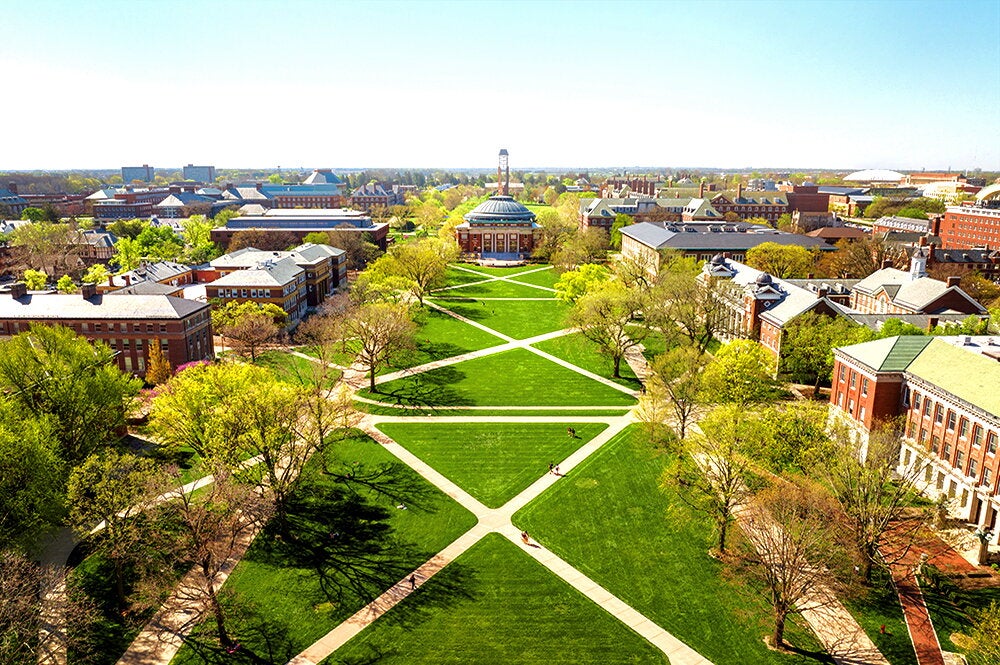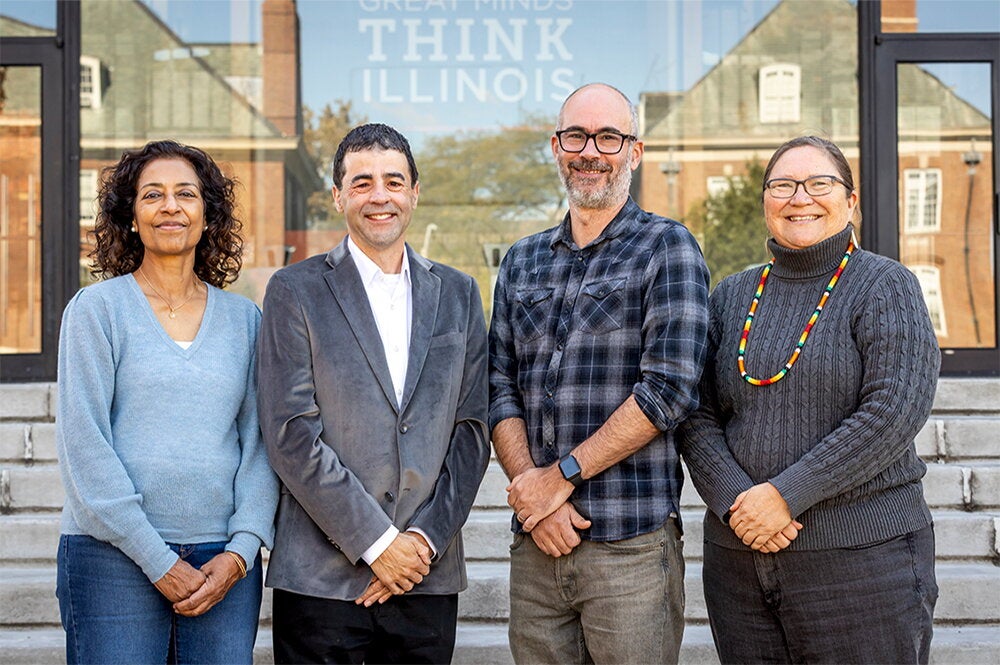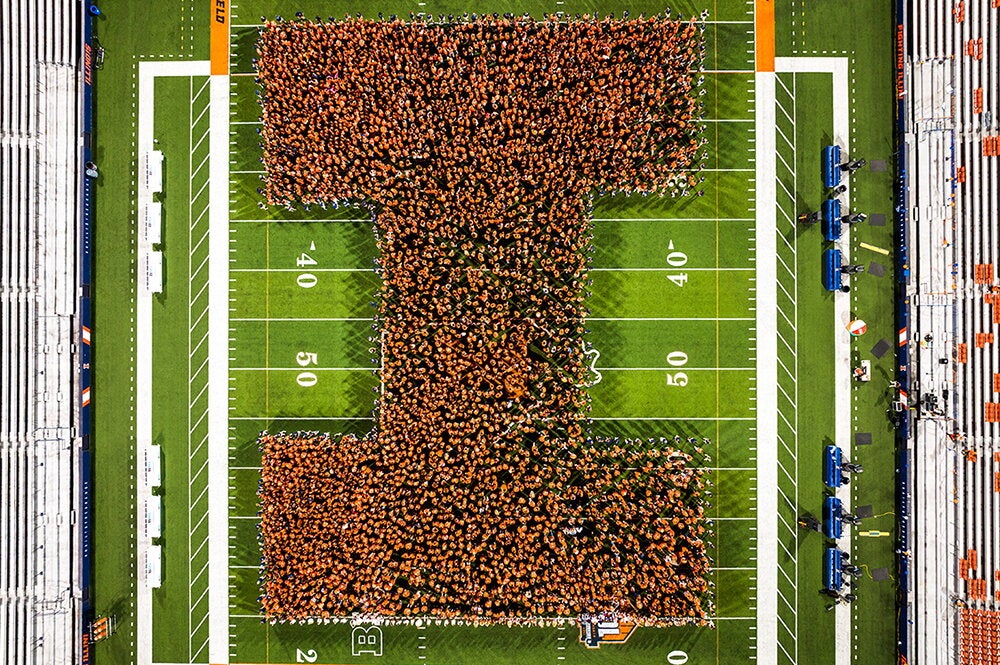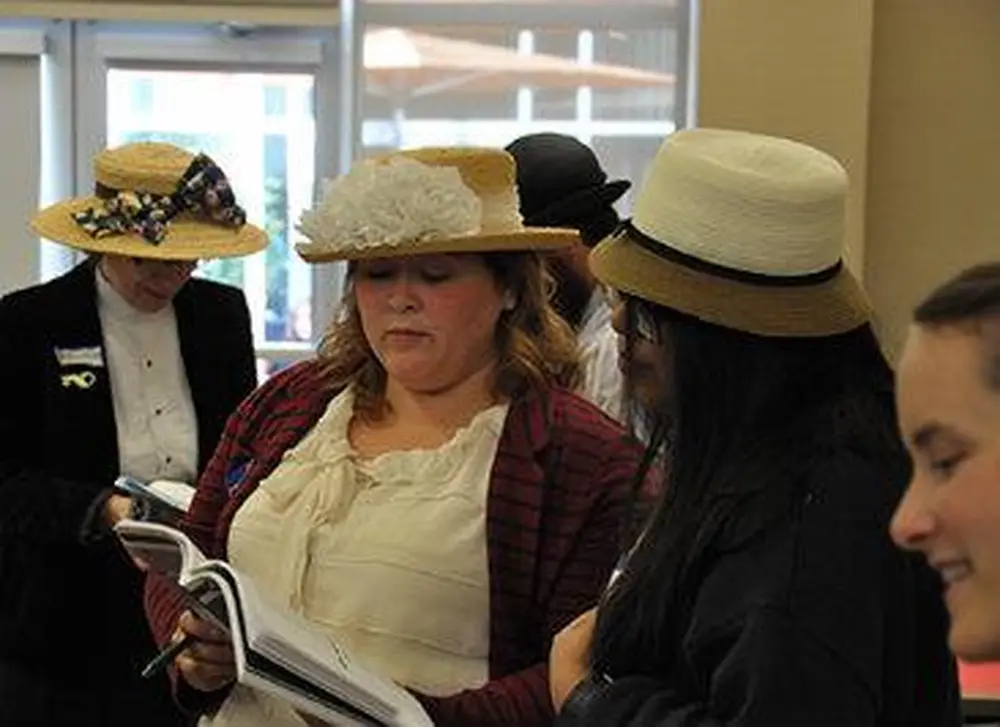
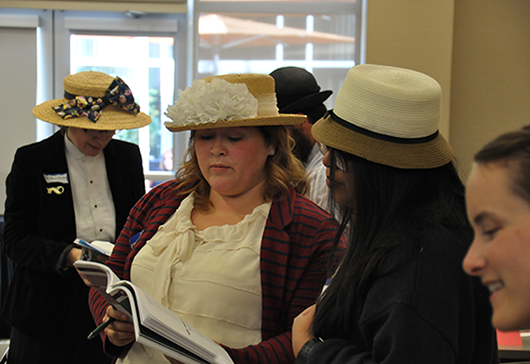
Leslie Reagan is a well-respected professor of history who joined Illinois faculty in 1992. But this past Oct. 16, she was Leah Schwartz, an outspoken, disaffected factory worker from the year 1913 who makes button holes all day.
She was a lively participant at a boisterous gathering in Greenwich Village, where she struggled to draw attention to the plight of working women even as suffragettes marched for women’s voting rights.
Never mind that this actually took place at a hotel conference center near the Illinois campus, and that in contrast to the flowered hats, long skirts, and other early 20th century attire worn by several in the crowd, you could also see the glow of smartphones and tablets. The assembled group was practicing a relatively new and highly effective teaching tool, and staying in character was key to the exercise.
“I have to support the working women, who are being paid pennies,” said Reagan (Schwartz), dressed in a wide velvet hat, white shirtwaist, and tie. “It’s not that I don’t support the vote. I will support the vote, and when I get it, I’m voting.”
“But the law is not relevant for you!” One of the suffragettes—another history professor—yelled.
“But if I have to choose, I support the workers,” Reagan countered. “I encourage you to join and get on the picket line with me, just like you were in 1909 when we were out there striking as seamstresses.”
The scene wasn’t just an exercise in acting (although the performances by some of the participants seemed worthy of the theater). It was a workshop for faculty and students to employ Reacting to the Past, an interactive or experiential teaching tool developed during the past few years to bring more depth and interest to the learning of history.
About 50 faculty and students from seven different colleges and universities attended the event, organized by the Department of History at Illinois. Clare Crowston, chair of the department, said a few faculty members in history have tried the role-playing tool in their classes, and the reaction from students has been so positive that they decided to help spread the idea through a two-day conference.
“I teach these games, and one of the first things students say to me is, ‘My roommate wants to know when he or she can take the game. How can I do this more? How can my friends get involved?’ We want to increase those offerings, and so that’s why we decided to have the conference,” Crowston said.
Crowston envisions the department becoming a leader in experiential or interactive learning.
“We think it will really work well with all of the campus interest, in transforming undergraduate learning,” she said.
Reacting to the Past originated in the late 1990s at Barnard College, and since then faculty at hundreds of universities have adopted it, but not yet on a large scale. It consists of an elaborate “game,” set at some significant moment or event in the past, where students assume the roles of various characters and play out the historical scenario.
It’s part history and part theater, and while participants are expected to be historically accurate, they are permitted to deviate from what actually happened—in other words, they can go off script. One of the discussions during the conference was what happens when, during a scenario based in India, someone decides to try to murder Ghandi—a twist in history that actually could have happened.
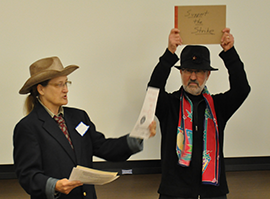
During the Greenwich Village game, Christine Peralta, a graduate student in history, played the part of Henrietta Rodman (1877-1923), an American educator and feminist who fought for maternity leave, among other things.
“One of my character’s objectives is to shock the audience and show what a Bohemian feminist is capable of,” Peralta said, with a laugh. “And that seems like a really fun thing if you’re an undergrad, but then, in this particular setting with a lot of faculty, and you’re trying to become faculty, it’s an odd thing to do.”
Reagan, who brought along many of the women’s hats that participants—including the men—wore, said she’s never used the tool in class before, but now she looks forward to using it.
“The students will love it,” she said. “We’ll be doing it maybe next year. I can imagine it being a little bit crazy if you’ve never done it before, but it’ll be fun.”
Raquel Escobar, a graduate student in history, was one of about 20 graduate students attending the conference. It was her first time participating in Reacting to the Past, and with plans to earn her doctoral degree and teach, she found it very worthwhile.
“As an undergraduate I found U.S. history surveys very boring and dry,” Escobar said. “As a future teacher, I’m really interested in thinking about different ways to engage students and get them really immersed in the moment.”
She said it teaches students to think on their feet and act outside of themselves.
“You really have to get comfortable with being a little bit of a weirdo, and putting yourself out there,” Escobar said. “It’s definitely not going to hurt public speaking skills. So it’s a really interesting teaching method that touches on things that are going to be very valuable outside the classroom.”
Melissa Schoeplein, career development specialist with the College of Liberal Arts and Sciences who attended the event, agreed with Escobar’s assessment.
“On top of allowing students to dive deep into a historical era, this innovative curriculum allows students to develop in-demand skills such as persuasion, problem-solving, critical thinking, and intellectual curiosity,” she said.
